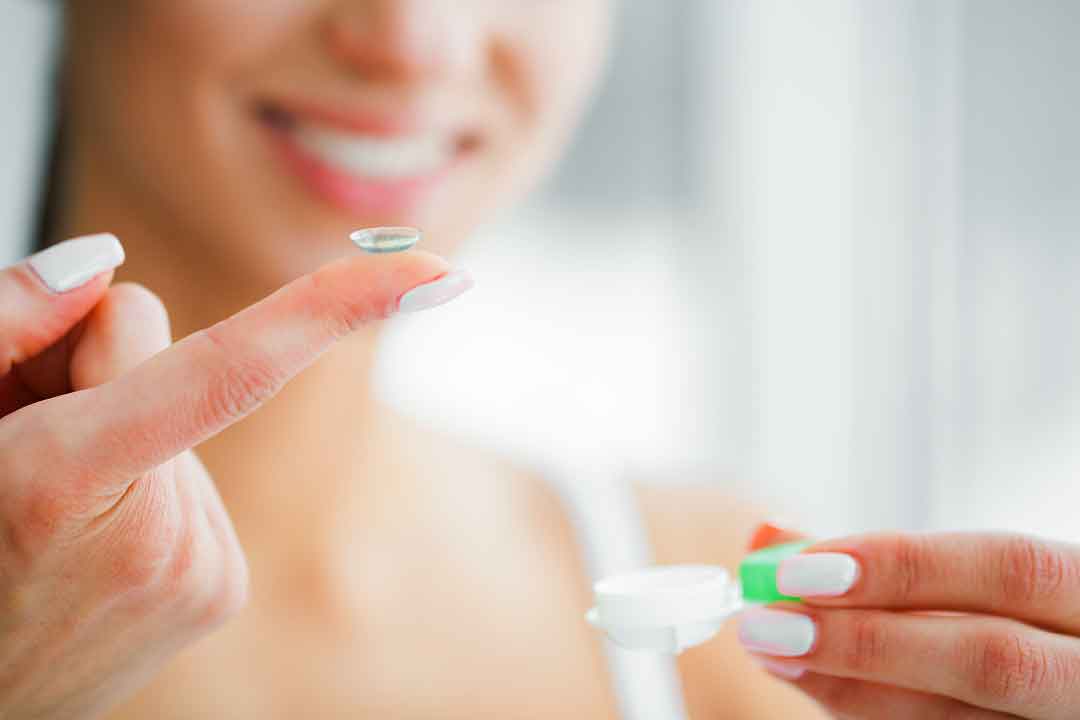
Wearing contact lenses
Technology around contact lenses has come a really long way such as with materials used, design and comfort. We offer a range of solutions for those who would like to try contact lenses instead of spectacles - all you need to do to get the ball rolling is book in to see us and we can discuss.
In the meantime, read on to see what our head office team has to say about the benefits of wearing contact lenses in this blog post (first published elsewhere, and republished with permission).
Contact lenses are a great alternative to spectacles, and for many people, they are the preferred vision option.
As a result of improvements in technology almost any vision problem can be corrected with contact lenses.
There have been enormous advances made in contact lens material and design, including the use of improved silicone hydrogel lens materials, advances in daily disposables for presbyopia and soft lenses that correct both astigmatism and presbyopia.
The latest contact lenses are comfortable and convenient to use. They are easy to adapt to, can correct most vision problems and are able to be worn from a young age. Many reasons why more than 680,000 Australians aged between 15 and 64 years wear contact lenses.

There are many other benefits to wearing contact lenses, including:
Full range of vision
Contact lenses provide you with a full range of vision, with no frames to obstruct your vision, particularly important when driving a car.
No fog
Contact lenses, unlike spectacles, contact lenses do not fog up.
Wear them playing sport
Contact lenses are perfect for sports and exercise.
More natural vision
Contact lenses move with your eye, which provides wearers with a more natural vision.
Daily to extended wear
Contact lenses can be worn daily or, in the case of extended wear every day, up to 30 days for some lenses.
Fashionable
Contact lenses are a good fashion choice. They will never clash with the clothing you wear, and many people feel that wearing contact lenses make them look better.
Surgery alternative
Contact lenses offer a safe, effective, stable, and changeable alternative to refractive surgery.
During this time of COVID there has been some uncertainty based on confusion and misinformation as to whether it is still safe to wear contact lenses.
So, how can you be sure contact lenses are safe to wear?
The simple answer is to be vigilant about your hand hygiene.
We are all aware that practicing good hand hygiene helps protect us from the COVID-19.
This same hygiene practice should also be applied to the wearing of contact lenses.
Advice from Optometry Australia recommends to “always wash your hands thoroughly with soap and warm water for at least 20 seconds before and after inserting and removing your contact lenses.”
As to some of the myths, a joint statement from contact lens experts puts paid to these:
Contact lens wear is safe
Despite myths and misinformation contact lens wear remains a safe and highly effective form of vision correction for millions of people worldwide.
Proper hand washing is essential
When using contact lenses, careful and thorough hand washing with soap and water followed by hand drying with unused paper towels is paramount. This should occur before every insertion and removal of contact lenses.
Disinfect contact lenses
Contact lens wearers should either dispose of their daily disposable lenses each evening, or regularly disinfect their monthly and two-week lenses according to manufacturer and eye care professional instructions.
Discontinue lens wear only if sick
Ceasing contact lens wear when sick is advised. This advice is consistent with guidance for other types of illness.
If you have further questions about contact lenses, contact us or book an appointment.
Ready to book an appointment?
Online bookings available or call us on (07) 3463 0349.
This website does not provide medical advice. It is intended for informational purposes only. It is not a substitute for professional medical advice, diagnosis or treatment. Never ignore professional medical advice in seeking treatment. If you think you may have a medical emergency, immediately dial Triple 0 (000).

